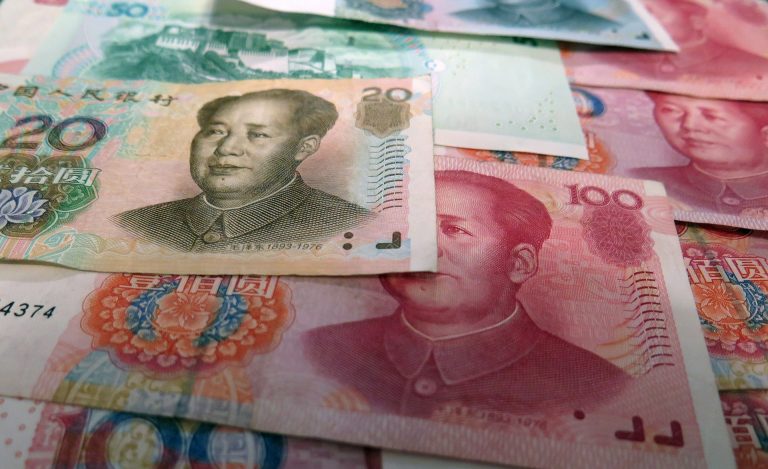China released its third-quarter GDP numbers and the results are lower than market expectations. According to data from the National Bureau of Statistics (NBS), China grew by just 4.9 percent in Q3, its weakest growth rate in a year. The Q3 number is lower than the second-quarter GDP growth rate which was at 7.9 percent. It is also trailing below expectations of several analysts. A Reuters poll had expected a 5.2 percent Q3 growth.
Following the GDP data release, equity markets in the mainland and Hong Kong fell. “The numbers are actually much weaker than what we thought… I think in the fourth quarter it will be even slower because we will see more impact from the energy crunch,” Woei Chen Ho, an economist at UOB, told Reuters.
At a press briefing on Oct. 18, NBS spokesperson Fin Linghui admitted that China’s economic recovery is “unstable and uneven.” He added that the challenges of keeping the economy running smoothly have increased.
China has been struggling with several issues for the past few months that have heavily weighed down on economic growth. The country is going through a power crisis. A shortage of coal has resulted in power cuts across China. Manufacturers have had to shut down factories and scale down production in some cases. Thermal coal prices are currently at record highs. In addition, businesses have also been affected by shipping delays and supply disruptions resulting in mounting inventories. Some are suffering a cash crunch due to the situation and losing out on orders or lowering production.
Another factor that has affected the Chinese economy is the Evergrande crisis. One of the largest real estate companies in China, Evergrande reportedly owes over $300 billion and is not in a position to service all its debts. Many other developers have also missed out on payments to creditors.
Success
You are now signed up for our newsletter
Success
Check your email to complete sign up
This has raised concerns about China’s property market, which together with its related industries is estimated to account for up to 30 percent of China’s GDP. As such, any fallout in the sector would be severely damaging to the country’s economy.
“The potentially faster-than-expected economic slowdown, driven by energy shortage and the contagion effect owing to a potential Evergrande default, will require further easing of monetary policy,” Citi economists said in a note prior to the GDP results.
Iris Pang, chief economist for Greater China at ING, believes that the Chinese economy has “a lot of pain points” that are not going away anytime soon as the policies that created them are here to stay. She expects the “pain points” to continue affecting the Chinese economy into 2022.
In an interview with Reuters, Louis Kuijs, head of Asia economics at Oxford Economics, said that he expects policymakers to take steps to shore up growth. Such measures can include accelerating infrastructure development, ensuring liquidity in the interbank market, relaxing some stringent rules on credit and real estate, etc.
Speaking to the South China Morning Post (SCMP), Zhang Zhiwei, chief economist at Pinpoint Asset Management noted that the third-quarter GDP growth of China indicated a risk of rising stagflation. Stagflation is an economic situation in which growth becomes slower while inflation keeps rising and unemployment is at high levels.
Zhang pointed out that quarter-on-quarter growth is at the slowest rate except for Q1, 2020 when the pandemic broke out. However, the unemployment rate declined, something he finds puzzling.
“This suggests the government may not feel the urgency to launch stimulus and boost growth. The [People’s Bank of China] press conference last week also sent signals indicating that monetary policy stance will not change significantly. Without a meaningful policy change, growth in the fourth quarter will likely slow further,” Zhang said.














